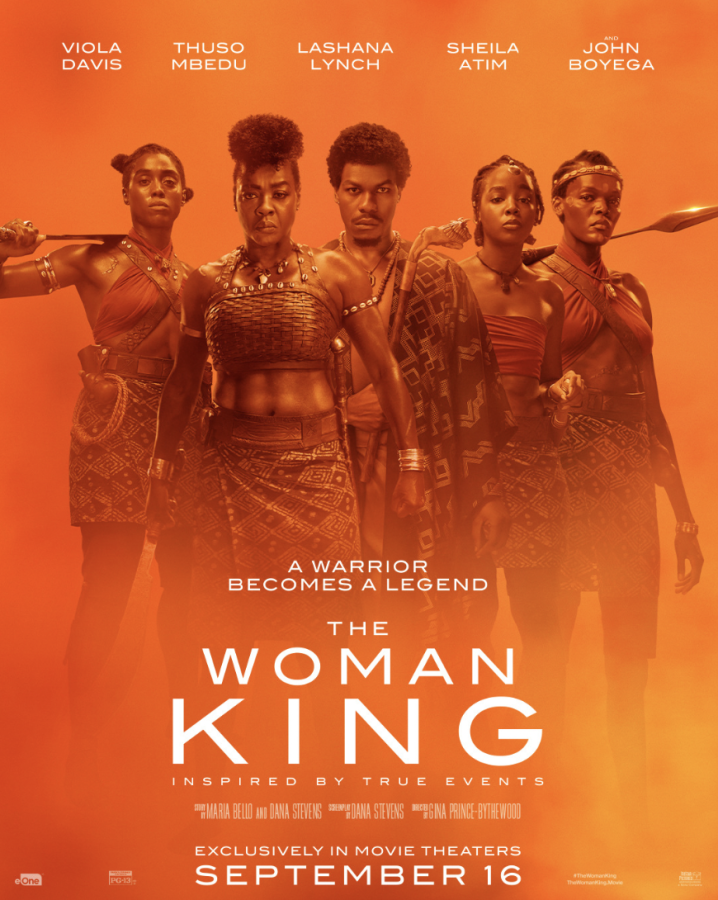Oscar “Snubs” open up conversation about representation
Oscar snubs such as these reflect issues of representation that not only the Academy Awards is responsible for.
On January 24, the Academy of Motion Picture Arts and Sciences announced their nominations for the 2023 Oscars. Fans eagerly tuned into the nomination ceremony, but some expressed their disappointment with the Academy’s selections. One of the most notable movies that was “snubbed” or left out of the nominations altogether was “The Woman King,” inciting internet conversations about the inclusivity of the Academy.
“The Woman King” is a film centered around the Agojie, a legitimate historical group of female warriors. In the film, the Agojie are left to defend their people when the Oyo Empire attempts to enslave their home, the Kingdom of Dahomey. The cast is almost completely composed of Black women led by star Viola Davis, and directed by Gina Prince-Bythewood.
The Oscars was called out online for continuing a social trend in Hollywood of ignoring underrepresented voices. Considering that only one Black woman ever won Best Actress and no Black woman has won Best Director, fans were enraged to see this pattern continue despite the film earning widespread critical acclaim.
Oscar snubs such as these reflect issues of representation that not only the Academy Awards is responsible for. Hollywood is stuck in a loop of valuing certain stories over others, which is perpetuated by the disproportionate representation of underrepresented groups in the industry.
According to the annual Hollywood Diversity Report from UCLA, women and people of color have still not reached proportionate representation in employment positions in American television. When looking at statistics on digital scripted platforms, the study concluded that people of color directed less than half the amount of digital episodes directed by their white counterparts, even though people of color account for 42.7% of the U.S. population. Additionally, women also directed only 34.4% of digital episodes despite making up slightly more than half of the U.S. population. This data was mostly constant on other platforms such as cable and broadcast, as well as other occupations such as acting leads and writers.
Although the Hollywood Diversity Report concluded that proportionate representation of people of color and white women has improved from years past, this progress does not mean that the issue can be moved on from.The employment barriers in Hollywood are more nuanced than they may appear.
In a recent article for the Hollywood reporter responding to the Oscar nominations, Gina Prince-Bythewood explained that in addition to employment issues with production companies and studios, the influence of industry connections leaves underrepresented groups at a disadvantage. The importance of industry ties was witnessed this awards season as Andrea Riseborough was nominated for Best Actress following a grassroots campaign from powerful voices in the community.
Issues of employment in Hollywood affect people not only in the industry, but the rest of society as well. A study called “The Inclusion Imperative” conducted by Common Sense Media, researched the impact of both positive and negative media representation on children. The results of the study supported that the media that kids consume has an impact on their self-image and feelings about their ethnic and racial identity. For example, it was reported that racial stereotypes in the media negatively affect both Latinx and Native American high school students’ thoughts about their physical appearance and community.
This study from Common Sense Media also recorded statistics on stereotypes enforced by film and television, reporting that characters of color are 2 to 13 times more likely than white counterparts to be depicted as violent.
However, balanced and authentic representation has begun to take form in Hollywood as studios come out with more films and television series centering around people of color. Disney’s “Turning Red” is one movie that has gained attention for its positive representation of women of color.
“The main character is Asian-American and feels a lot of pressure from her parents, and I feel like I can really relate to that,” sophomore Hannah Lee said. “I love that she obsesses over boy bands and I feel like she is a character that I can really find myself in.”
Another movie that impacted fans similarly was “Encanto.” The film’s characters such as Lousia and Isabella, who break social norms and showcase their powers, have become important role models for fans.
“You see that many women of color…inspiring you. You’re like, oh my gosh, I love this Disney movie,” freshman Ariannah Hunte said. “They’re literally animated characters and have superpowers. It isn’t realistic that they have superpowers, but how cool is it to see women in power?”
Additionally, “The Inclusion Imperative” study found that women of all racial backgrounds are more likely than men to be sexualized in adult programs. These stereotypes give audiences a one-dimensional view of women and their role in society. By equating their worth to their superficial qualities, female characters are left without fully fleshed-out stories that resemble real people.
“Disney princesses are really good characters because they show [audiences] what women can do,” sophomore Lily Driscoll said. “And they spread a positive image of what we can accomplish.”
Some ways in which Southern Lehigh High School has taken steps to create a more equitable learning space is by including diverse stories in their English curriculum and using inclusive language in the classroom. English teacher Mrs. Lauren Tocci aims to provide her students with a syllabus that effectively encapsulates all of American literature. One book that she praises for illustrating the importance of honoring different stories and viewpoints is “Their Eyes Were Watching God.”
Mrs. Tocci is both a megafan of the Oscars and self-proclaimed “lifelong film nerd” who studied film in her Master’s program at Kutztown University, and continues to explore her interest in film as a PhD student at Lehigh University. She believes that, even though the entertainment industry is seeing milestones of progress in terms of representation, the fact that these milestones still need to be reached is telling of the issue itself.
“When moments like that happen, that is the best thing that the Oscars can do–make us think that my limited experiences, my limited contacts and film, can somehow expand and make a project that’s going to make me feel connected or make me see something different than what I am used to,” Mrs. Tocci said. “That is the beauty of film. But the problem is, in order to do that, you have to do the best you can to keep pushing that further.”

Junior Gianna Cusumano is a third-year staff reporter and the current Features editor of Spotlight. She is the vice president of her class, the treasurer...












